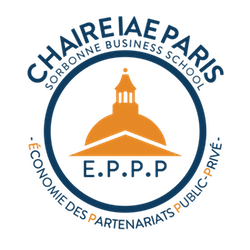11 mai 2011 Michael Klien : « Political vs managerial control and public service prices: Evidence from Austrian water utilities » & Julie de Brux, Jean Beuve et Stéphane Saussier : « Renegotiations and Contract Renewals in PPP »
Michael Klien (WU Vienna)
« Political vs managerial control and public service prices: Evidence from Austrian water utilities »
& Julie de Brux, Jean Beuve et Stéphane Saussier (IAE de Paris)
« Renegotiations and Contract Renewals in PPP »
Political vs managerial control and public service prices: Evidence from Austrian water utilities
Michael Klien (WU Vienna University of Economics and Business)
As an alternative to privatization, corporatization implies a shift of control rights over a firm from a politician to a manager while the public retains ownership. Although organizations with such features are fairly common, both in Europe and the US, there is little empirical work trying to assess the effects of corporatizations. This paper tries to fill this gap by analyzing the effect of corporatization on the price setting behavior of public firms. Based on a simplified version of Shleifer and Vishny (1994), I test the hypothesis that a corporatization decreases political interference in price setting. The empirical evidence from a dataset on Austrian water providers largely corroborates this hypothesis. Specifically, the effect of the political business cycle and partisan politics on price setting is significantly restrained in corporatized firms. This result is confirmed by a series of robustness and sensitivity tests.
Renegotiations and contract renewals in PPPs. An empirical analysis.
Jean Beuve (IAE de Paris) et Julie de Brux (IAE de Paris)
In this paper we shed some lights on the issue of renegotiations, that are mainly seen as negative, but with no theoretical consensus and very few empirical evidence. Using an original data-set of 295 expired public-private contracts in the French car park sector, we assess the impact of renegotiations on the contractual relationship. In this regard, we built a typology of renegotiations and we investigate the link between such renegotiations and contract renewals. Indeed, if renegotiations led to surplus decrease, then parties would not be prone to contract again together. Our econometric results reveal that some renegotiation types, their frequency and their scope clearly impact on the probability to see a contract renewed as soon as public authorities have discretionary power on the decision to renew a contract with the same private partner. Hence, our results suggest a positive, negative or neutral impact on the contractual surplus depending on the kind of renegotiation and the kind of contract that is considered.
